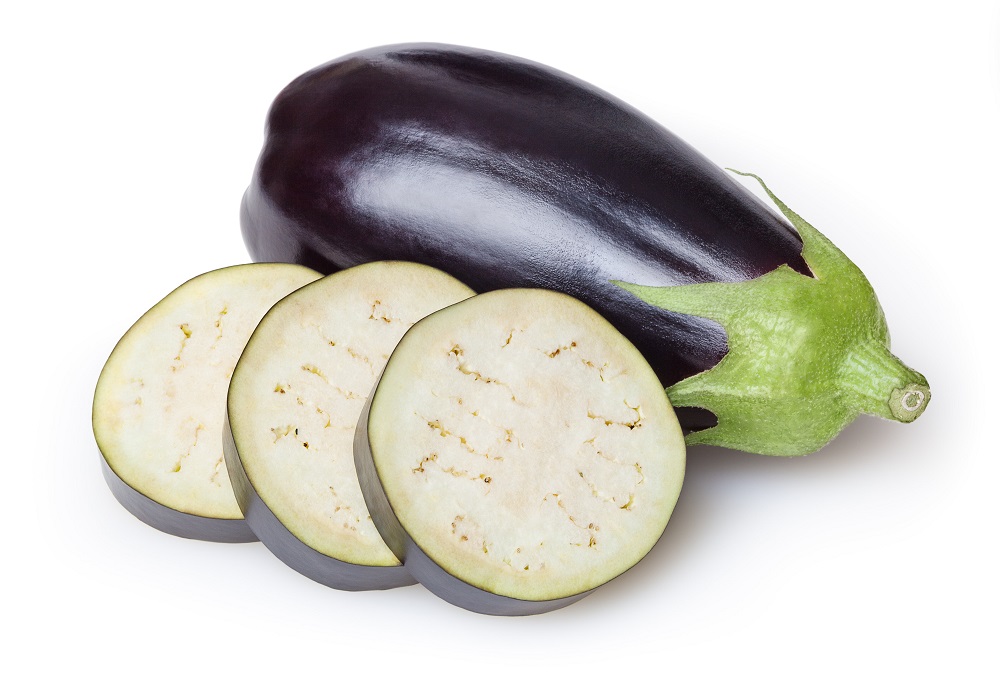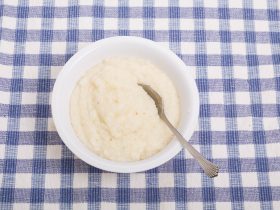Eggplant, otherwise known as Aubergine in Europe1, is in fact several species of plants that produce edible fruit. Yes, contrary to popular belief, eggplant is in fact considered a fruit in the field of botany.
Consumed in many forms of dishes, eggplants are most often cooked before being served, as raw eggplant may prove to be unpleasant to the taste. Because of this particular purpose, it is important to select only the freshest of eggplant, and to store it appropriately if not immediately put to use.
Eggplant will last as long as an entire year, so long as the proper storage procedures and environment are introduced before it has begun to spoil. In less-than-ideal conditions, eggplant will only last up to two days, a marked difference in length of time.
How to Know if Eggplant has Begun to Spoil
Eggplant, like most organic produce, quickly begins to expire once exposed to the elements for a certain amount of time. The presence of bacteria and fungi begin to break the eggplant down at a cellular level, creating byproducts known as toxins that can smell and taste unpleasant.
Apart from microorganisms, eggplants will also dry out or otherwise suffer in terms of quality when stored in the wrong conditions.
The first and most obvious sign that an eggplant is no longer fit for consumption is wrinkling and shriveling of the skin. While this does not often indicate that bacteria or fungi have begun to take root in the fruit, this does mean that the eggplant has been stored improperly.

Apart from the visual cue of wrinkling skin, if the inner flesh of the eggplant has begun to take on a brown or grayish hue, it is best to discard it, as these discolorations show that enzymatic action has begun to break down the eggplant from within2.
Texturally, if the flesh has grown slimy or soft and no longer holds a firmness like that of a ripe eggplant, it is also advisable to throw it away.
Odd growths or patches of rot also indicate that fungi have begun to colonize your eggplant. Once these spots are visible, the eggplant is unsafe to eat, and must be disposed of immediately.
What are the Ideal Conditions for Storing Eggplant?
Like most fruits, eggplant will begin to dry out due to evaporation and osmosis if they are kept out in improper conditions and storage environments. To combat this, controlling the humidity, temperature and light-levels present within the storage vessel or room is vital to extending the shelf-life of eggplant.
Temperature wise, if the storage conditions are too warm, both enzymatic activity and the growth of microorganisms will be accelerated due to increased molecular movement. Conversely, if the temperature is too low, the eggplant will suffer great losses in the quality of its taste and texture owing to the damage crystallized water does to the eggplant at a cellular level.
Knowing this, the ideal temperature to store eggplant in is a cool 50°F, approximately slightly warmer than the average temperature of most commercial refrigerators.
In the case of humidity, it is vital to ensure that the relative moisture content of the air within the storage environment is no higher than 95%, as any higher will both encourage fungal growth and cause the texture of the eggplant to decay somewhat.
If the humidity is too low instead, the eggplant will begin to dehydrate as water is pulled into the air. To avoid this, keep the eggplant lightly wrapped in the crisper drawer of your refrigerator, controlling the humidity at a high 90-95%.
Can Eggplant be Stored at Room Temperature?
As the ideal conditions for storing eggplant are a far cry from the average room-temperature cupboard or counter-top, it is important to keep in mind that simply leaving your eggplant out in the open will cause it to become inedible within two days.
In order to reach this admittedly short amount of time, it is best to wrap the eggplant lightly in a paper bag and to store it in a cool and dark corner of your kitchen away from any direct sources of light, especially that of sunlight.
How Long Will Eggplant Last in the Fridge?
A more advisable option than simply leaving your eggplant to rot on the counter-top, refrigerating eggplants will allow them to retain a shelf-life of up to seven days, though this depends on many factors such as the exact area of the fridge the eggplant has been stored in as well as how long it has been left outside prior to storage.
To refrigerate your eggplants for as long as possible, pick only eggplants that show clear indications of being fresh and within their optimal ripeness. Inspect them for any signs of insect damage or fungal growth, as these will cause the eggplant to expire very quickly.
Once your produce has been picked, wrap the eggplant in a paper towel and place within an air-tight container or plastic pouch.
How Long Will Eggplant Last in the Crisper Drawer?
Placing your eggplant in the crisper drawer will allow it to fully reach the exact maximum shelf-life it is capable of within the fridge.
Simply follow the instructions mentioned in the previous section; pick the ideal candidate for storage, wrap in an insulating paper towel and place it within an air-tight container or plastic pouch.
After doing so, all that is needed is to leave the container of eggplant in your crisper for up to an entire week.
Can You Freeze Eggplant?
In the event that you require truly long-term storage for your eggplants, there are no other methods more effective than freezing them. It is not without its own drawbacks, however, as freezing will decrease the quality of your eggplant.
It is also important to note that eggplant cannot be frozen raw. Freezing raw eggplant will positively ruin its texture, creating a slimy mess. Only roasted eggplant may be frozen beforehand. If your plans for the eggplants involve cooking in another form, it would be wiser to instead refrigerate them.
How to Freeze Eggplant
First, to begin freezing your eggplant, thoroughly wash the surfaces so as to remove any dirt left over from the market or farm.
Now clean, slice the eggplant into your desired thickness and length. Line a parchment or wax-paper lined baking tray with the sliced eggplant medallions, leaving a small amount of space between each slice.
Place this baking tray in the oven at a temperature of 350°F for approximately ten minutes. If you so desire, it is possible to season the eggplant prior to this step, though salt will alter the dynamics of freezing them somewhat.
After baking, remove the eggplants from the oven and let them cool on a wire-rack for thirty minutes. This is to ensure that any moisture present in the eggplant will not condensate in the freezer, causing the formation of ice crystals between the medallions.
Place the now-cooled eggplant slices into an air-tight resealable plastic pouch, taking care to remove as much air as possible from within. Place the resealable pouch in the freezer away from any rapidly moving air or areas where it may be crushed beneath other containers.
Eggplant stored in this way will last as long as eight months, though its texture will begin to deteriorate before this point of time.
Will Sliced Eggplant Expire More Quickly?
Yes – outside of the freezer.
Slicing eggplant will rupture its cells at a microscopic level, as well as compromise its bacterial and fungal protection by exposing the fruit’s flesh to the open air. If you wish to store sliced eggplants, it is best to roast them and then freeze them.
References
1. “Aubergine”, Oxford English Dictionary, undated Archived 2015-08-10
2. Unknown Author. (n.d.) “Eggplant” http://www.whfoods.com/genpage.php?dbid=22&tname=foodspice
3. Unknown Author. (n.d.) “Storage guidelines for fruits & vegetables.” www.gardening.cornell.edu/factsheets/vegetables/storage.pdf





Hi, I'm Dom
Dom Eats was started to help other people fall in love with food. While cooking can feel intimidating, it doesn't have to be.